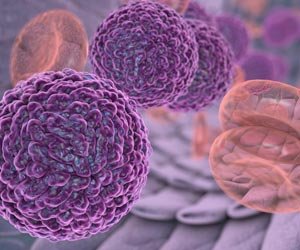New Dengue Related Biological Markers Discovered

about new developments in biomarker panels for dengue in clinical use improve the triage and risk prediction.
“While most symptomatic dengue infections are self-limiting, a small number of patients develop complications that usually occur at around four to six days from symptom onset,” explains first author Vuong Nguyen Lam, Researcher and PHD Student at Oxford University Clinical Research Unit (OUCRU), Ho Chi Minh City, Vietnam.
Advertisement
Vuong and colleagues selected 10 candidate biomarkers which are more likely to increase during the early stages of disease from vascular, immunological and inflammatory pathways associated with dengue disease pathogenesis.
These biomarkers were: VCAM-1, SDC-1, Ang-2, IL-8, IP-10, IL-1RA, sCD163, sTREM-1, ferritin, and CRP.
Later they selected 281 cases in four countries – Vietnam, Cambodia, Malaysia and El Salvador to compare with selected 556 patients with uncomplicated dengue who shared similar geographies and demographic characteristics.
Measuring the participants’ blood biomarkers at two different time points – one during the first three days of illness, and the second following recovery (10-31 days after symptom onset).
They discovered that higher levels of any of the 10 biomarkers during the first three days of illness increase a patient’s risk to develop moderate to severe dengue.
They also identified different clinical outcome based on biomarker in various age groups. Combination of six biomarkers was best associated with severe disease in children, and a combination of seven biomarkers was best associated with severe disease in adults.
All these findings can assist in the development of biomarker panels can improve individual patient management and healthcare allocation, especially in outbreak settings.
Source: Medindia
Source link
#Dengue #Related #Biological #Markers #Discovered



